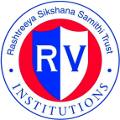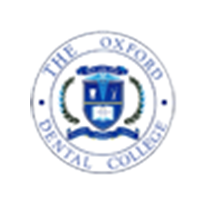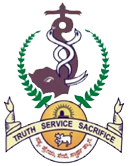Best Dental Colleges In India
Experience Dental Excellence: BDS Courses in India!
As the medical profession gains immense significance in India, dentistry plays a vital role in healthcare. With the nation’s health infrastructure evolving, the demand for skilled dental professionals is crucial. Reports from the Government of India highlight the need for qualified dentists to meet the growing healthcare needs of the population.
India faces a shortage of dentists, and the current number falls below the World Health Organization’s recommended ratio. This presents a remarkable opportunity for aspiring dental students to make a significant impact on the healthcare system.
India boasts reputable dental colleges offering diverse BDS courses. These institutions nurture and train future dental professionals, equipping them with the necessary knowledge and skills to address the nation’s oral health challenges.
With advancements in dental technology and research, dental professionals lead innovative treatments and preventive care. The importance of oral health is increasingly recognized, making dental experts valued members of the integrated healthcare team.
BDS graduates can specialize further through MDS programs, contributing to private practices, esteemed dental hospitals, and pioneering research. Dental outreach programs extend essential oral care to underserved communities.
Aspiring dental students can shape the future of India’s oral healthcare. Through comprehensive education and state-of-the-art facilities, BDS courses empower students to become skilled dental professionals, impacting countless lives.
Join the journey of dental excellence in India through our BDS courses and create a healthier, happier nation, one radiant smile at a time!
Dental Courses available In India
Welcome to the realm of dentistry in India, a thriving hub of education and training that caters to the aspirations of countless dental professionals. Our country offers a wide array of dental courses, providing aspiring dentists with comprehensive education and specialized skills to embark on a successful career journey. Let’s delve into some of the popular dental courses available in India.
The Bachelor of Dental Surgery (BDS) stands as the cornerstone of dental education in India. This 5-year undergraduate program focuses on fundamental concepts, encompassing oral anatomy, dental materials, oral pathology, periodontology, prosthodontics, orthodontics, and more. Upon completing BDS, graduates have the opportunity to serve as accomplished general dentists or pursue postgraduate courses to further specialize in their preferred dental disciplines.
For those aspiring to become experts in specific dental fields, the Master of Dental Surgery (MDS) awaits as an enticing postgraduate program. Over a period of 3 years, MDS offers in-depth knowledge and training in various specialties, such as oral and maxillofacial surgery, orthodontics, periodontics, endodontics, pedodontics, prosthodontics, and more. MDS equips students with advanced clinical skills and research expertise, empowering them to excel in their chosen domains.
Beyond BDS and MDS, several diploma courses provide shorter yet intensive training in specific dental specialties. These courses focus on areas like dental hygiene, dental mechanics, dental radiography, dental implantology, aesthetic dentistry, and others, granting students specialized proficiency to meet the demands of modern dentistry.
For those who seek to explore the realms of dental research and academia, the Doctor of Philosophy (Ph.D.) programs in dentistry beckon. These research-focused courses allow students to delve deep into a specific area of dental sciences, conducting original research and contributing to the advancement of dental knowledge. Graduates of Ph.D. programs can pave the way for academic or research-oriented careers, fueling the progress of dentistry.
Practicing dentists can benefit from certificate courses, which provide additional training and expertise in specific dental procedures and techniques. These courses cater to areas like oral surgery, endodontics, cosmetic dentistry, implantology, dental radiology, and more, elevating the skillset of dentists and enhancing the quality of patient care.
Lastly, for dentists seeking to further specialize and gain advanced proficiency, fellowship programs offer focused education and clinical experience in specific dental specialties. These programs are designed for shorter durations and cater to areas like oral and maxillofacial surgery, orthodontics, periodontics, and others, shaping experts in their chosen domains.
India’s rich tapestry of dental courses empowers aspiring and practicing dental professionals to hone their talents, acquire specialized knowledge, and chart a course towards an enriching and rewarding career in dentistry. Embrace the opportunities that await you and join us on this transformative journey of dental excellence.
Admission process for Dental colleges in India
The admission process for dental colleges in India typically follows a structured and competitive procedure. Here is a general overview of the admission process:
Eligibility Criteria: Candidates must meet the eligibility criteria set by the respective authorities, which usually include minimum academic qualifications, age limits, and mandatory subjects (such as Physics, Chemistry, Biology, and English) in their qualifying exams. In case of admission on the basis of qualifying examination under clause (1) based on merit, candidate for admission to BDS course must have passed in the subjects of Physics, Chemistry, Biology & English individually and must have obtained a minimum of 50% marks taken together in Physics, Chemistry, and Biology at the qualifying examination.
Entrance Examinations: Students are required to appear for national or state-level entrance examinations. The most common entrance exams for medical courses in India include NEET (National Eligibility cum Entrance Test) for MBBS/BDS and AIIMS (All India Institute of Medical Sciences) entrance exam for admission to AIIMS institutions.
Application and Counselling: After the entrance exam results are announced, candidates need to apply for counselling and seat allocation. They must register on the respective counselling authority’s website, fill out the application form, and select their preferred colleges and courses.
Seat Allotment: Based on the candidates’ merit and preferences, seats are allocated during the counselling process. The allocation process may involve multiple rounds, depending on the number of seats available and the number of applicants.
Document Verification and Admission: Shortlisted candidates need to attend document verification sessions at designated centers. Once the documents are verified, candidates can proceed with the admission process by paying the required fees and completing any additional formalities.
It’s important to note that the admission process may vary slightly depending on the specific college or university. Therefore, students should refer to the official websites of the respective authorities and institutions for detailed information and updates regarding the admission process.

Top Dental Colleges In India








